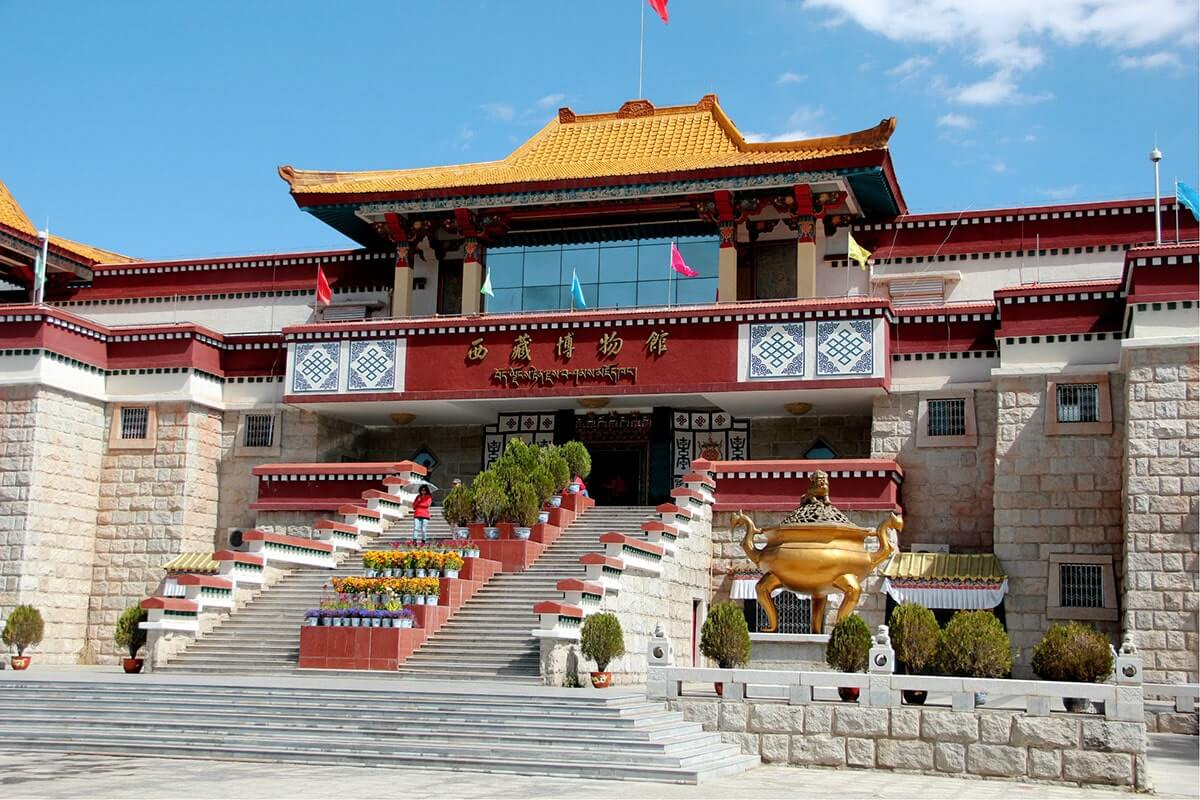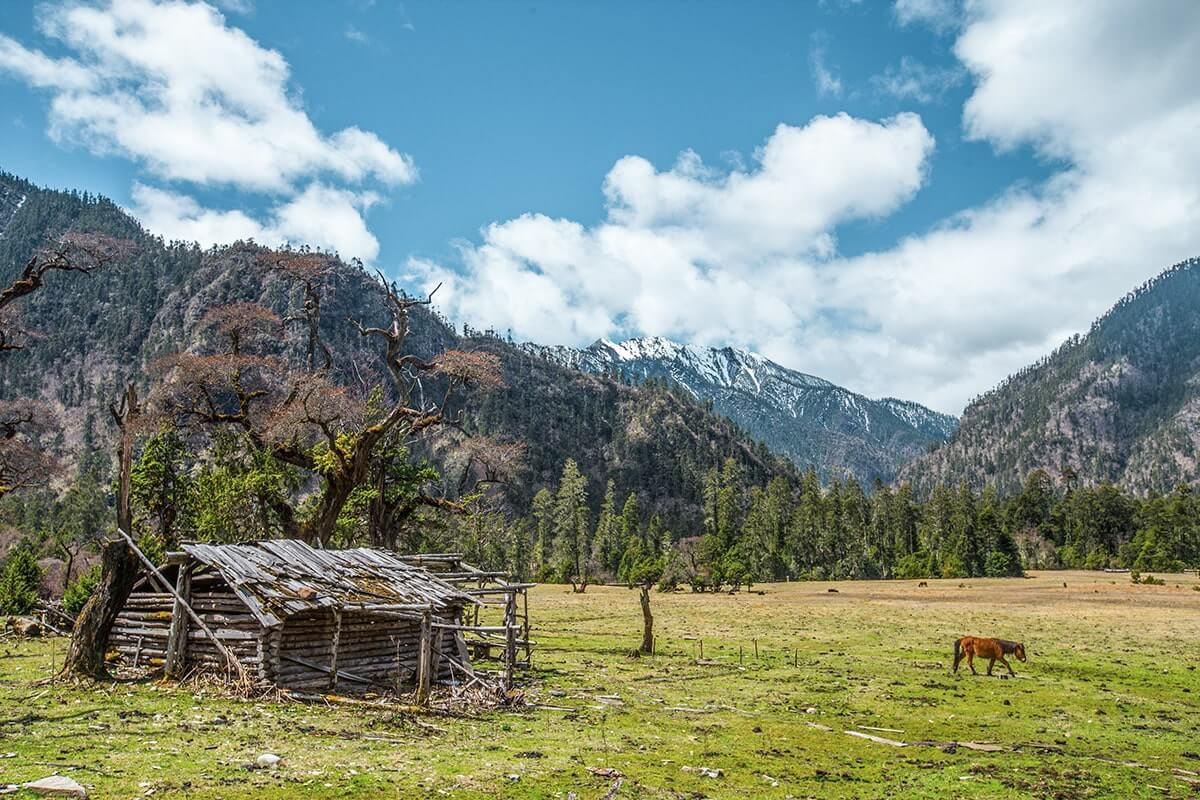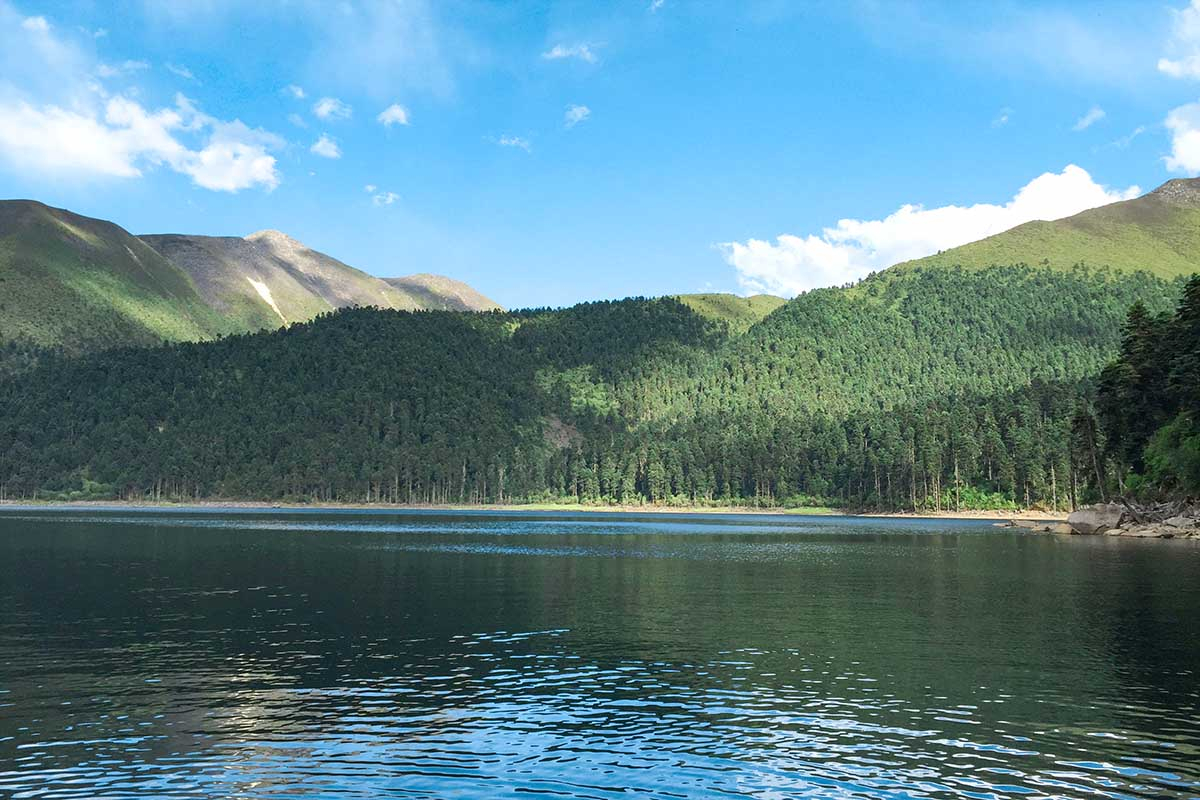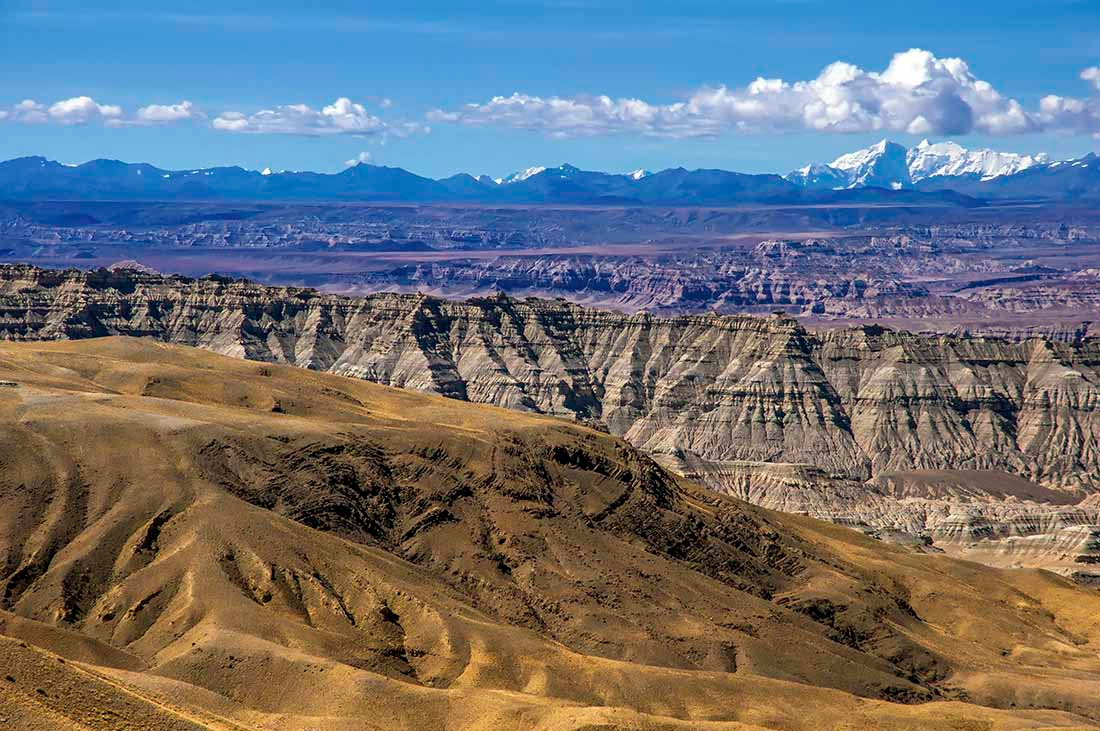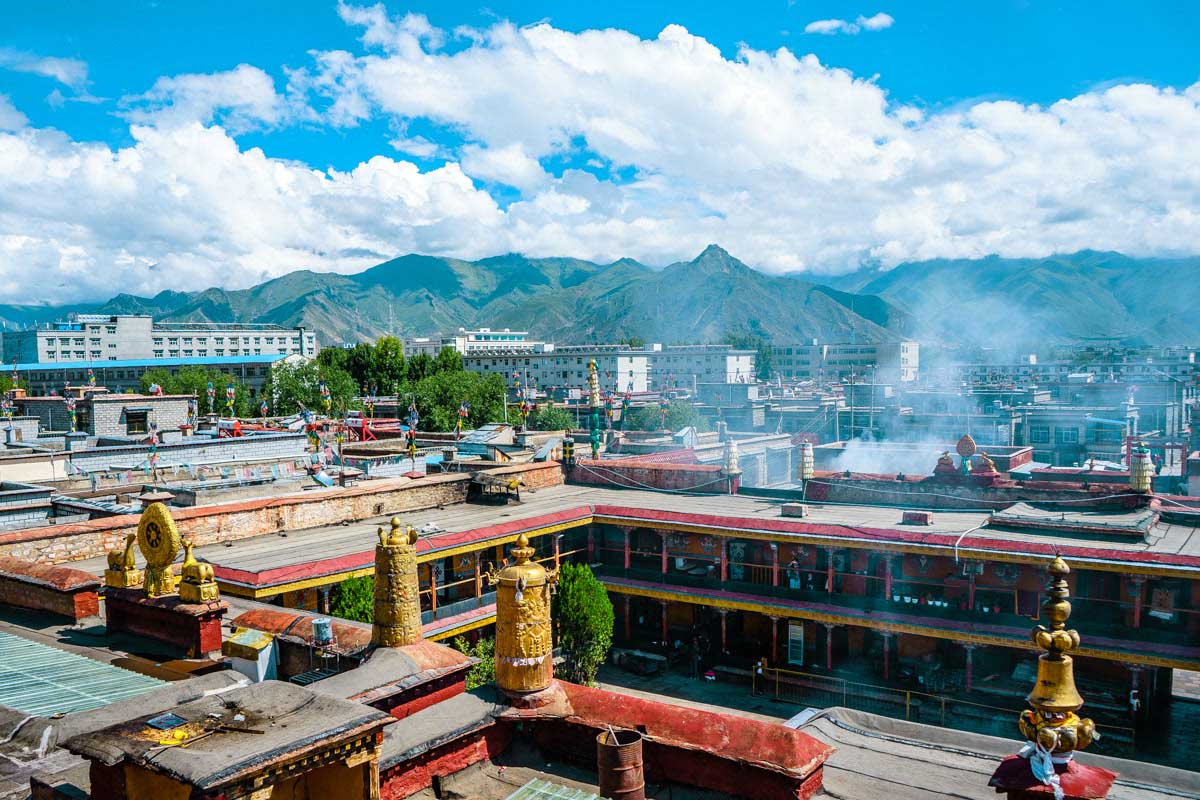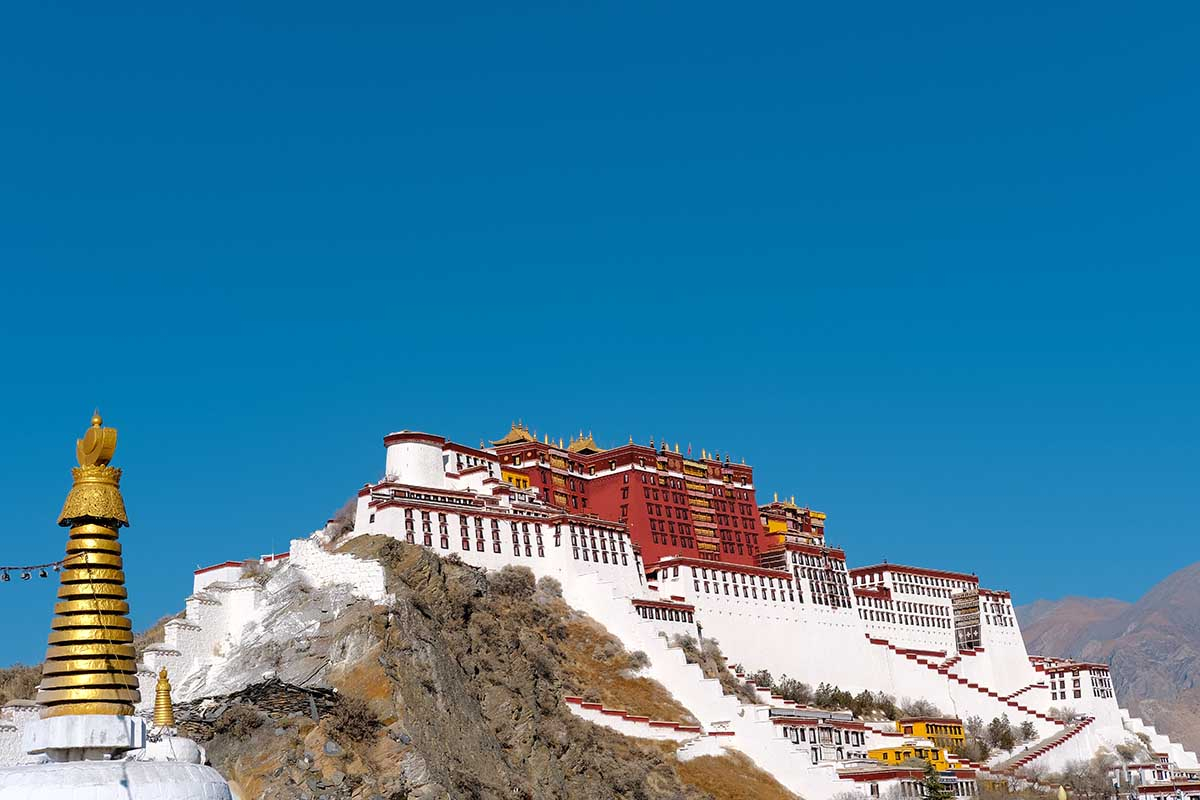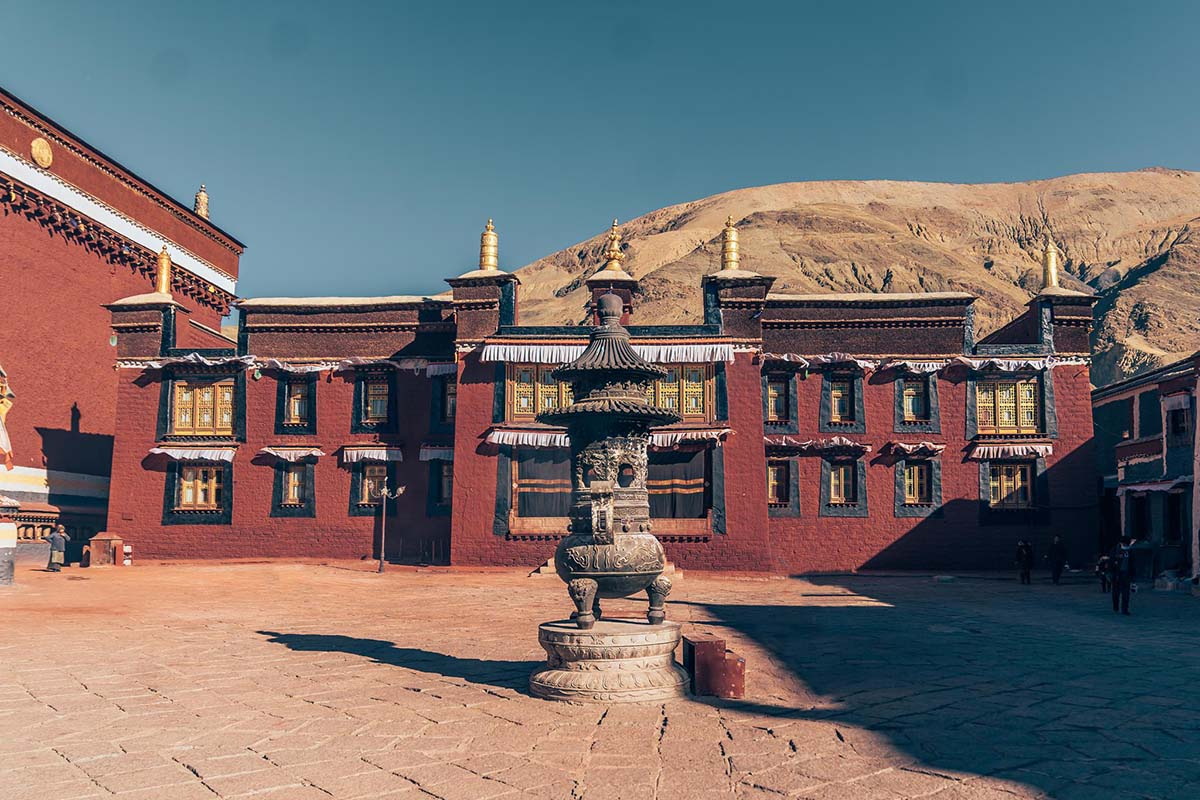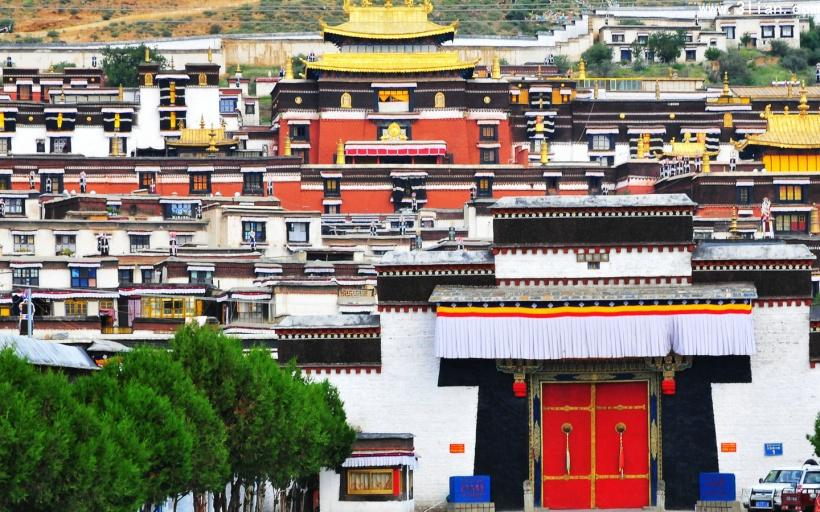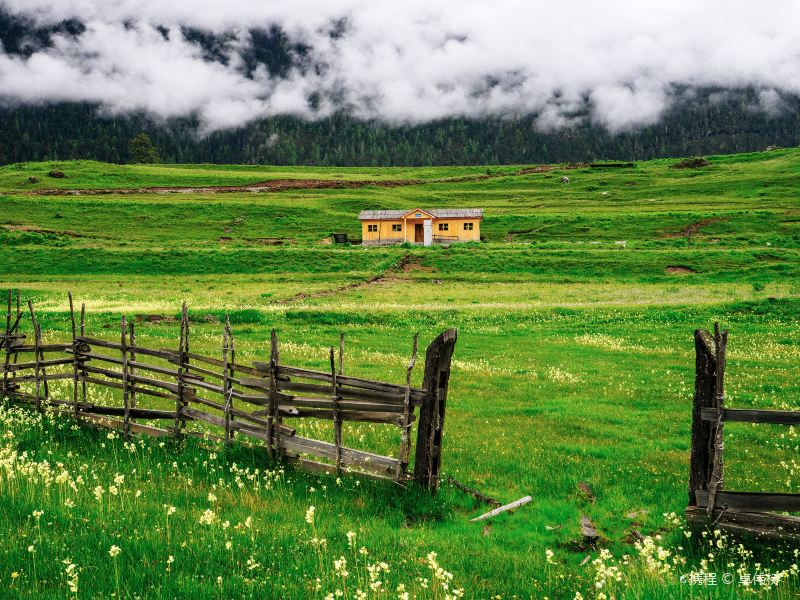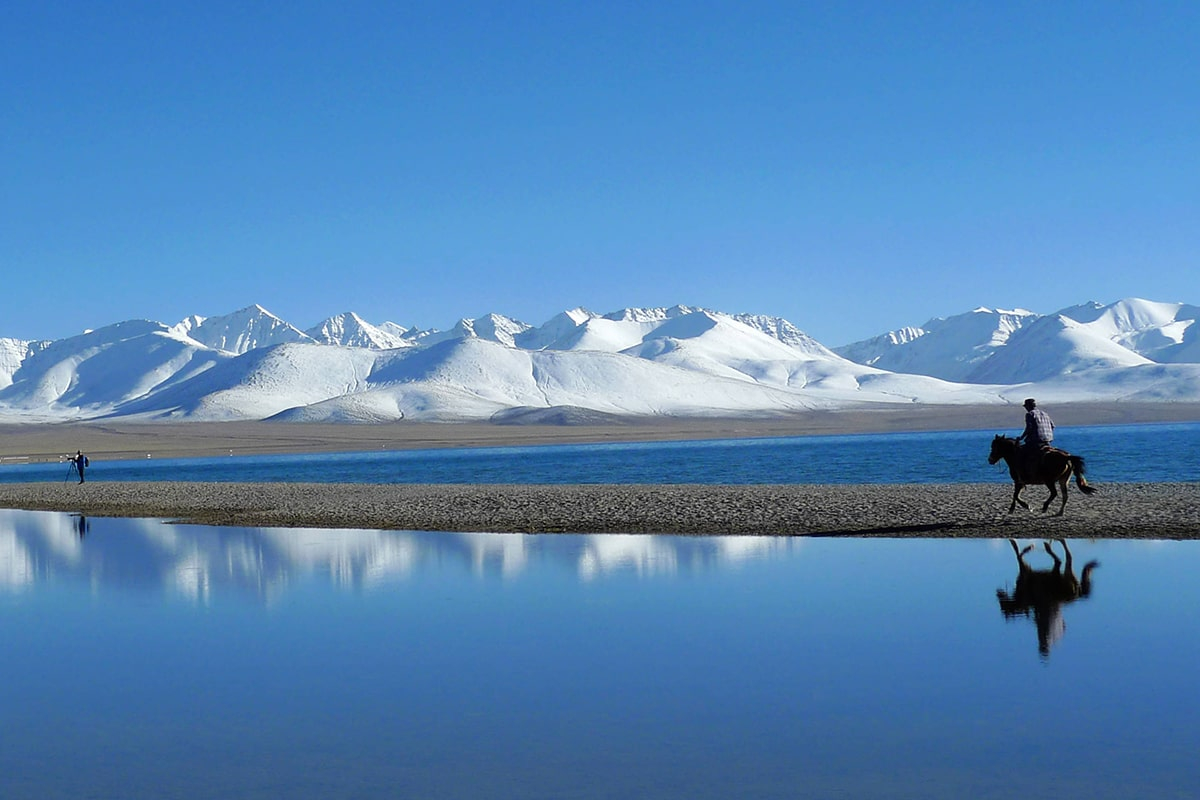Nanyi valley
Chinese Name: 南伊沟(Nan Yi Gou)
Location: Nanyi village, Milin County
Ticket: Entrance ticket CNY110.00, sightseeing bus CNY90.00
Estimated time of tour: 2-3 hours
Recommended time of visit: May to October
Nearby attractions: Lulang Forest Area, Kadinggou Tianfo Waterfall, Basomtso lake, Yarlung Zangbo Grand Canyon., etc.
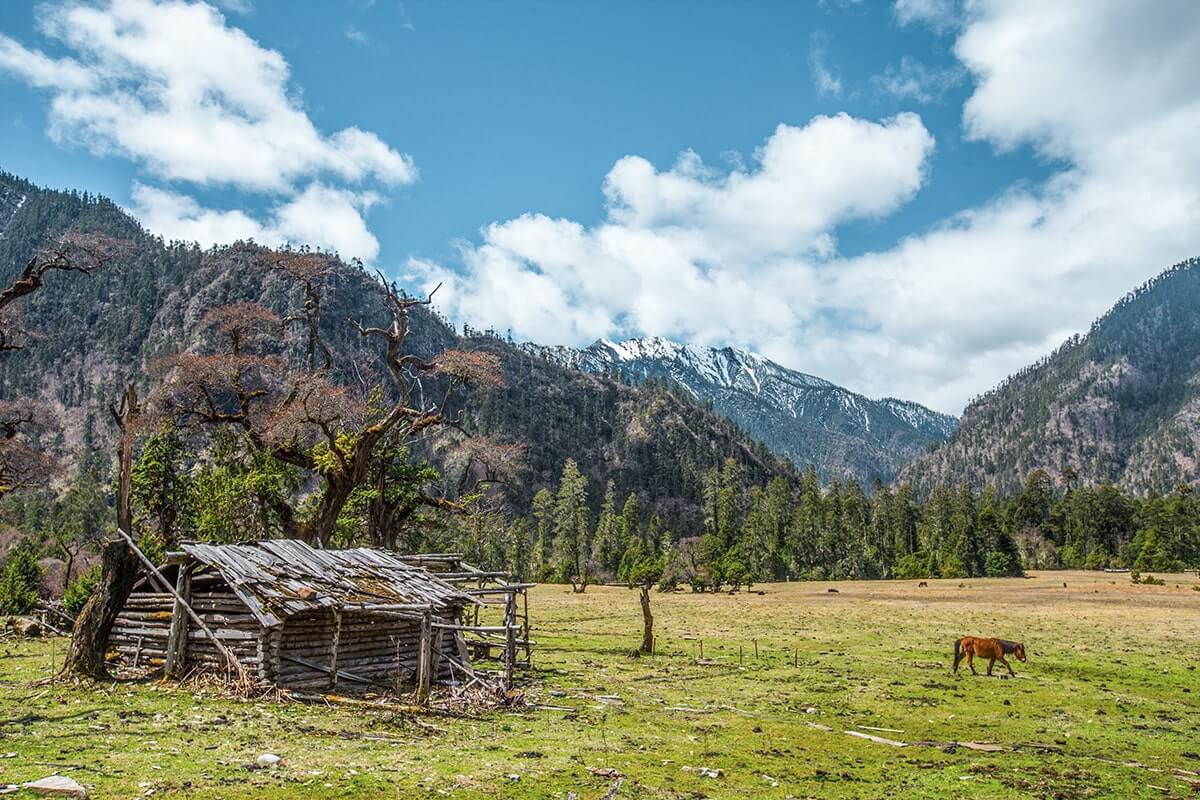
Nanyi valley locates in Nanyi village, 20km south of Milin town. It is on the north side of Himalaya Mountain. It is known as Valley of Tibetan Herb Medicine. Legend had it that Yundan Kampot, the ancestor of Tibetan Medicine, once practiced medicine and lectured his apprentice here. With average elevation of 2500 meters, Nanyi valley features a relatively warm climate and dense forest. People call it Miniature Jiannan (regions of south of the Yantze river often features a warm climate and fertile land) as it has an average temperature of 8.2 degree and annual precipitation of 675mm. Such climate and meteorological conditions boosts rich resources of plants and animals.
● Highlights of Nanyi Valley
Village of Lhoba ethnic
Lhoba (luoba in mandarin Chinese) is a unique ethnic minority who lived side by side with Tibetan people for centuries. Demographic census in 1980s estimated that there are 600,000 Lhoba people, of which 2300 lived in China, making Lhoba the least populous ethnic group among all officially recognized ethnic minorities. They are often seen in villages of Milin , Motuo and Chayu townships. They have their own spoken language, but written language is in the form of Tibetan. The word Lhoba came from Tibetan, it means people from the south. Apart from farming, Lhoba people are mostly engaged with hunting and gathering.
Virgin forest
Nanyi valley is sparsely populated. Its forests and vegetations are well preserved and untouched by the outside world. Most of its terrains are covered by coniferous forests. Lush meadows scatter around valleys. In spring, blossom of peach flower and rhododendron decorate the whole valley while in autumn red and orange leaves dominate the scene.
Suspension bridge
Ancient suspension bridge locates 3km from a Lhoba village. It is the only route for local Lhoba people when they go out for hunting and gathering.
Yin-Yang tree
At the end of the trail near the virgin forest, lies a special tree which has been worshiped by Lhoba people for centuries. Its trunk resembles the male and female genitals (hence Yin and Yang), not surprisingly the spiritual Lhoba people see it as a magic tree which boosts fertility.
- HOTEST
- RECOMMEND
